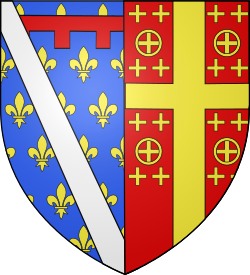This article needs additional citations for verification .(August 2018) |
| Years |
|---|
| Millennium |
| 2nd millennium |
| Centuries |
| Decades |
| Years |

| 1364 by topic |
|---|
| Leaders |
| Birth and death categories |
| Births – Deaths |
| Establishments and disestablishments categories |
| Establishments – Disestablishments |
| Art and literature |
| 1364 in poetry |
Year 1364 ( MCCCLXIV ) was a leap year starting on Monday of the Julian calendar.